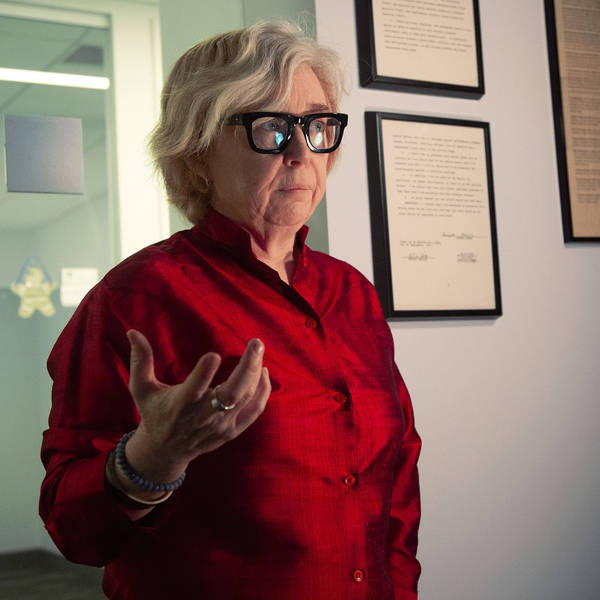
'Women Don’t Get AIDS, They Just Die From It'
From the very earliest days of the epidemic, women got infected with HIV and died from AIDS — just like men. But from the earliest days, this undeniable fact was largely ignored — by the public, the government and even the medical establishment. The consequences of this blindspot were profound. Many women didn’t know they could get HIV.
But in the late 1980s, something remarkable happened. At a maximum security prison in upstate New York, a group of women came together to fight the terror and stigma that was swirling in the prison as more and more women got sick with HIV and AIDS. Katrina Haslip was one of them. An observant Muslim and former sex worker, she helped found and create AIDS Counseling and Education (ACE), one of the country’s first HIV and AIDS organizations for women. And when she got out of prison, she kept up the work: she joined forces with women activists on the outside to be seen, heard and treated with dignity. This is her story — and the story of scores of women like her who fought to change the very definition of AIDS.
Voices in this episode include:
• Katrina Haslip was an AIDS activist who was born in Niagara Falls, New York. She spent five years at the Bedford Hills Correctional Center, during which time she served as a prison law librarian and helped found the organization AIDS Counseling and Education (ACE). After her release in 1990, she continued her advocacy through ACE-Out, an organization she formed to support women leaving prison, as well as ACT UP and other organizations.
• Judith Clark spent 37 years in prison for her role in the October 1981 Brink’s robbery. In prison, she helped found AIDS Counseling and Education (ACE), along with other programs to support and counsel women. Since her release in 2019, she has continued to work on behalf of incarcerated and formerly incarcerated women.
• Maxine Wolfe was a member of the women’s committee of ACT UP. Wolfe is an American author, scholar and activist for AIDS, civil rights, lesbian rights and reproductive rights. She is a co-founder of the Lesbian Avengers, a coordinator at the Lesbian Herstory Archives, and a member of Queer Nation. Wolfe is currently professor emerita of women's and gender studies at the Graduate Center, CUNY.
• Terry McGovern is a lawyer and senior associate dean for academic and student affairs in the CUNY Graduate School of Public Health and Health Policy. In 1989, McGovern founded the HIV Law Project and served as the executive director until 1999. Her successful lawsuit against the Social Security Administration enabled scores of women with AIDS to receive government benefits.
• Dr. Kathy Anastos is a professor at the Albert Einstein College of Medicine. Anastos’s work advances HIV and AIDS research and treatment, both globally and in the Bronx. She has been the principal investigator of the New York City/Bronx Consortium of the Women's Interagency HIV Study (WIHS) since it was launched in 1993.
This episode title comes from a Gran Fury poster. Gran Fury was an artist collective that worked in collaboration with ACT UP and created public art in response to the HIV and AIDS epidemic.
Resources: "The Invisible Epidemic: The Story of Women And AIDS" by Gena Corea.
Blindspot is a co-production of The HISTORY® Channel and WNYC Studios, in collaboration with The Nation Magazine.
A companion photography exhibit by Kia LaBeija featuring portraits from the series is on view through March 11 at The Greene Space at WNYC. The photography for Blindspot was supported by a grant from the Economic Hardship Reporting Project, a nonprofit organization that promotes coverage of social inequality and economic justice.
